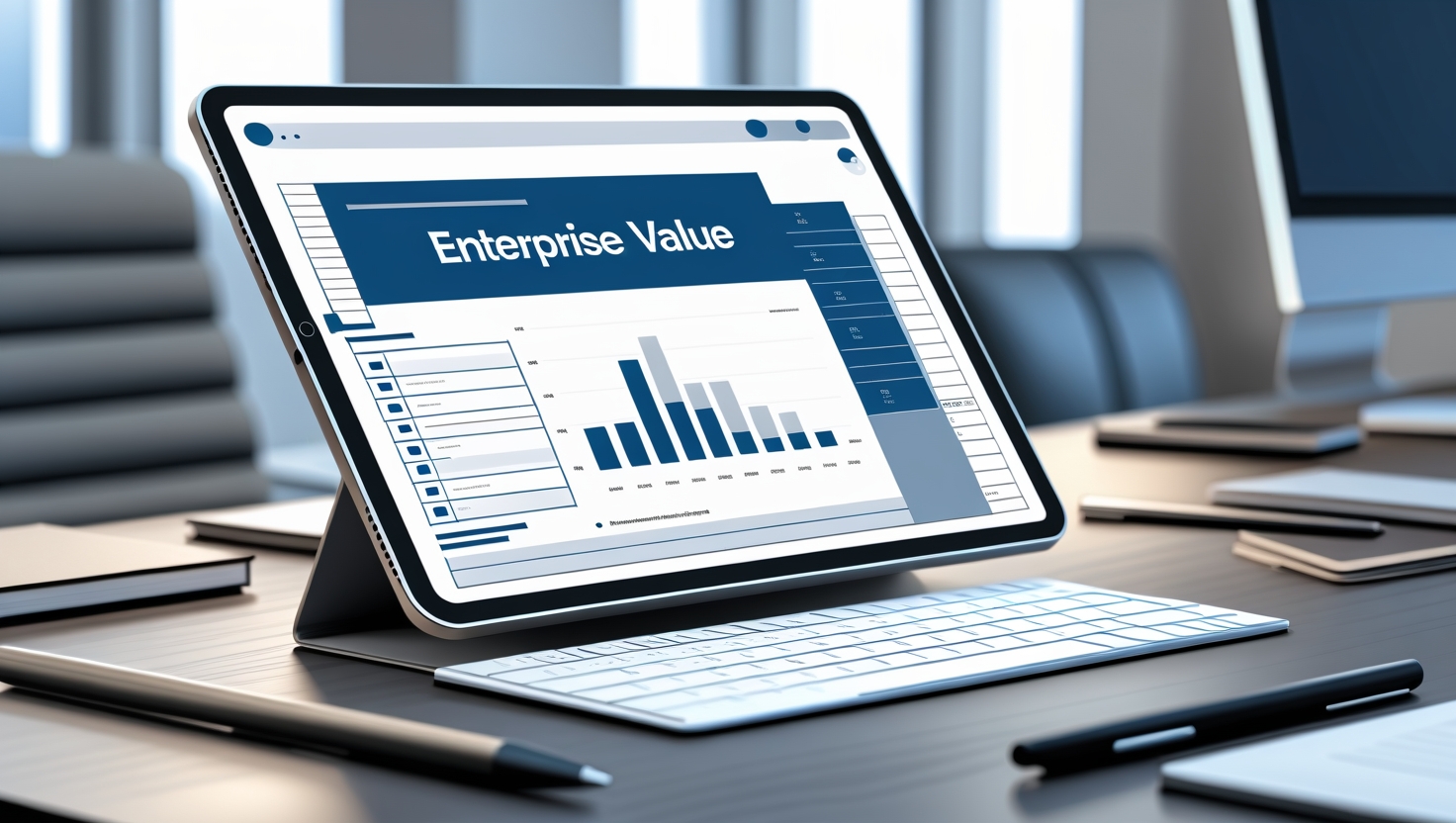
What is Enterprise Value (EV)? #
Enterprise value (EV) indicates your company’s overall worth. To understand your company’s value, consider total shares, debts, and available cash. Large corporations, small businesses, and even investors use this number to decide how successful a business is right now.
This guide will explain EV in simple steps. You’ll learn why it’s important, how to calculate it, and how it can help your small business grow.
Why Should Small Business Owners Value EVs? #
EVs are not just for large-scale corporations. Small business owners also find it important. Here’s why:
1. It Attracts Investors
Investors like knowing the full value of a company. EV doesn’t just look at your shares; it also includes debt and cash. Clear numbers make your business more attractive to people who want to invest.
2. It Helps You Plan Better
Understanding your business value lets you create better strategies. Considering growth? Contemplating acquiring another company? Knowing your EV gives you the complete picture to make smart moves.
3. It Gives You More Power in Negotiations
If you ever sell your business, merge with another, or form a partnership, showing EV gives you an advantage. It shows the real value of your company and strengthens your position.
4. It Lets You Compare with Your Competitors
EV is also great for seeing how your business measures up. You can compare EVs with similar businesses in your industry to learn where you stand.
5. It’s Reliable
Share prices fluctuate daily, yet EVs remain consistent. A better way to understand your business in the long term exists.
What Makes Up Enterprise Value? #
To figure out EV, we first need to understand all the parts that enter into it. Here are the five main pieces of EV:
1. Market Capitalization
This refers to the total value of your company’s shares. To calculate it:
- Multiply the price of one share by the number of shares your company has.
For example, if your share price is ₹100 and you have 10,000 shares, your market capitalization is ₹10,00,000.
2. Total Debt
Debt includes the money your company owes—like loans or bonds. Investors want to see this because it shows your financial commitments.
3. Cash and Cash Equivalents
Cash and assets that can be quickly turned into cash are important too. We subtract these from the calculation since they add liquidity and can pay off debts.
4. Minority Interests
If you own part of another company or have subsidiaries, you add their value to your total EV. This ensures you include their contribution to your business’s worth.
5. Preferred Equity
Some companies have preferred stock, which is different from regular stock. Include this in EV calculations because preferred stockholders often receive payments before regular ones.
How to Calculate Enterprise Value #
You don’t need any special tools to calculate EV. Follow these simple steps to figure it out:
- Start with Market Capitalization Multiply your company’s share price by the number of shares.
- Add Debt, Add all debts including loans and bonds, to your market capitalization total.
- Subtract Cash, Take out any cash or cash-equivalent resources your business has.
- Add Minority Interests, If you hold a part of another business, add its financial contribution.
- Add Preferred Equity, If your company has preferred shares, include their value.
Once you’ve collected all this, use the following formula:
EV = Market Capitalization + Debt + Minority Interests + Preferred Equity – Cash and Cash Equivalents
For example, say your retail business has:
- Market capitalization: ₹20,00,000
- Debt: ₹5,00,000
- Cash: ₹1,00,000
- Minority interests: ₹2,00,000
The EV calculation would look like this:
₹20,00,000 + ₹5,00,000 + ₹2,00,000 – ₹1,00,000 = ₹26,00,000
This means your business’s total enterprise value is ₹26,00,000.
Use Vyapar App to handle billing, stock & payments all in one place.
Make bills, track stock, and handle payments in one place.
